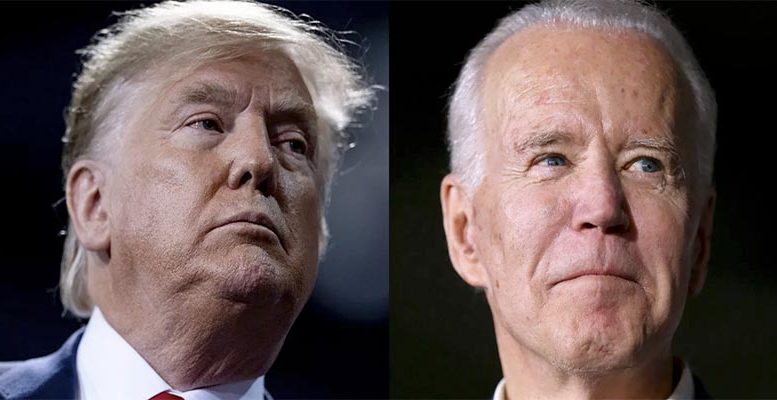Allianza Global Investors | The final presidential debate between Mr Trump and Mr Biden was yesterday evening. This final head to head between the candidates before the election on 3 November came after the second debate was cancelled due to Trump’s infection with coronavirus. Despite the chaotic back and forth between both candidates during the first debate, there are notably different views between both candidates about corporate taxes, energy and US-China trade. Some of these differences may have an impact on markets going forward. With only a few days to go, the race is tightening between Mr Trump and Mr Biden. While much is at stake in this election cycle, the three policy areas noted above could have a larger impact on the markets and portfolio allocations. With this in mind, investors may need to adjust portfolios depending on the direction of policy after election day – though emerging technology may be winners regardless of the outcome.
Corporate tax policy: while Mr Trump’s corporate tax policies are more market-friendly, Mr Biden’s plan may be offset by other growth initiatives
Mr Biden wants to reverse the Trump administration’s 2017 tax cuts, raising the corporate tax rate from 21% to 28% (while keeping it below the pre-2017 rate of 35%) and creating a minimum 15% tax for corporations earning USD 100 million or more. He also plans to double the tax rate for foreign subsidiaries of US firms. These policies would likely hurt earnings for sectors that benefited the most from Mr Trump’s tax cuts (including financials, consumer staples and utilities) as well as large multinational companies with overseas operations (including technology and healthcare). However, Mr Biden does plan to invest in growth areas such as clean energy and 5G technology. Moreover, the US economy is recovering from recession, so Mr Biden may not make tax hikes an immediate priority – and there is no guarantee they will pass, especially if Congress remains divided.
Mr Trump wants to maintain the status quo. The corporate tax cuts he implemented in 2017 were designed to be permanent, and he also likely wants to turn the temporary tax cuts for individuals into permanent ones. However, much depends on which party controls the US Congress after the elections – a Democratic Congress would be much less receptive to Mr Trump’s tax proposals.Energy policy: a Biden presidency could create opportunities for clean energy, while another Trump term would support the existing energy regime
Mr Biden plans to invest heavily in areas like renewable energy and climate protection. His policy calls for a USD 2 trillion investment in solar, wind and other clean-energy sources, as well as incentives for manufacturers to produce zero-emission electric vehicles and energy-efficient homes.
Mr Trump’s plan focuses more on traditional energy sources such as oil, natural gas and coal – which account for over 80% of total energy used in the US (vs 10% for renewable energy). He would provide a friendlier tax and regulatory regime for traditional energy, as well as continued support for “fracking” – a drilling technique used to extract oil or natural gas from underground. The Trump administration believes its energy policies have made the US less vulnerable to shocks from the Middle East or OPEC.US-China trade policy: both candidates would be “tough on China” and aim to strengthen US tech leadership over China
President Trump has made US-China trade a priority of his administration – often acting unilaterally or via executive order. The two countries did agree on a Phase 1 trade deal back in mid-January, but tensions have since resumed over the pandemic and the business practices of Chinese technology firms. In a second term, Mr Trump would likely continue his tough rhetoric and uniliteral approach, perhaps spurring market volatility in the years ahead.
Mr. Biden has also pledged to be “tough on China” but has indicated he prefers building coalitions – bringing US allies, labour groups and environmental organisations to the negotiating table. His administration would likely also view Chinese-led technology firms less favourably; Mr Biden proposes a USD 300 billion investment in US technology spending (including 5G, AI and cybersecurity) to remain competitive with the Chinese. President Trump would likely favor continued US leadership in technology as well, although he has not confirmed any new policy measures to support this.Despite their many differences, Mr Biden and Mr Trump are aligned in some areas that markets may not appreciate. For example, both candidates support some form of lowering pharmaceutical drug prices. Both also favour more regulation of – and have even called for breaking up – certain large US tech firms. And both hope to pass substantial US infrastructure packages, supporting areas like smart cities, roads and airports – though Mr Biden also supports developing clean-energy infrastructure.
Finally, this election cycle may have an additional element of uncertainty, even after 3 November comes and goes, as election officials will have to count and confirm a larger than usual number of mail-in ballots; we thus may not have results for perhaps days or even weeks after election day, something to be mindful of as markets may be volatile during this period of uncertainty as well.





